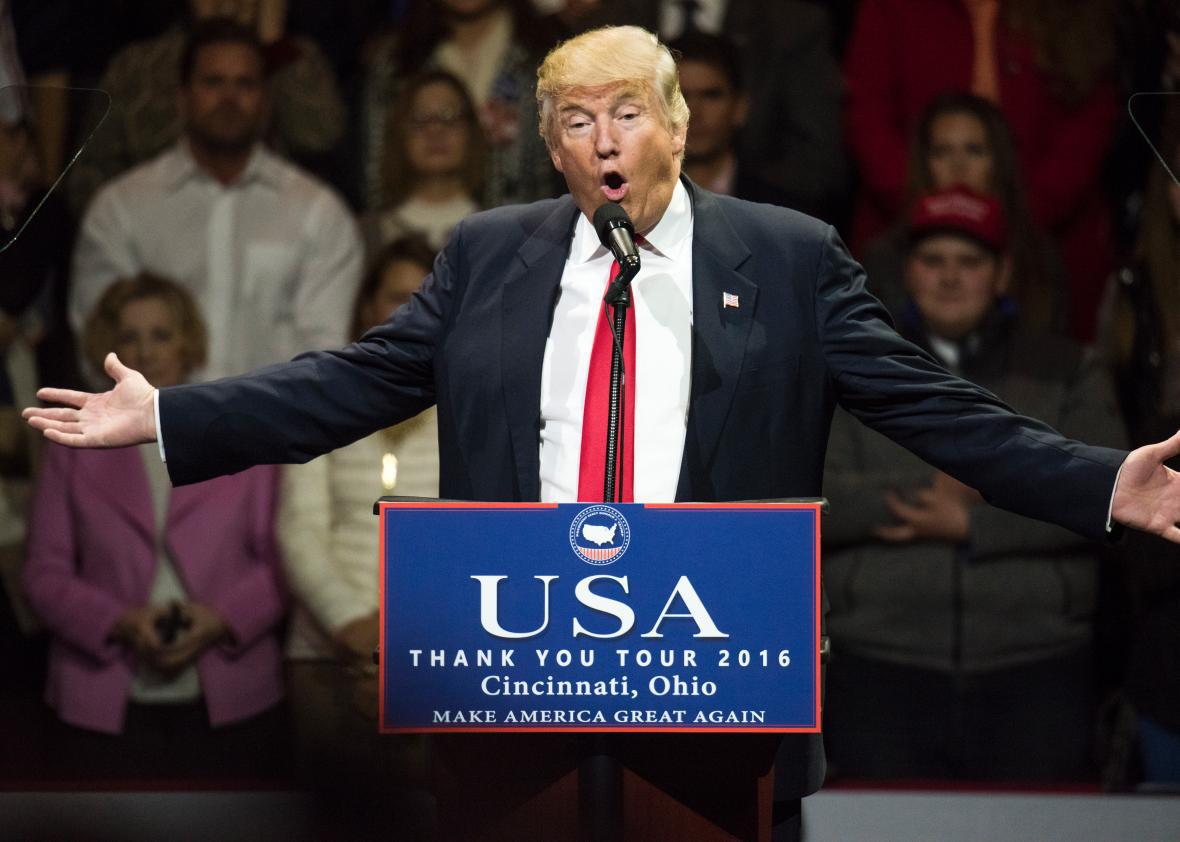The first publicly known phone call between a U.S. president-elect and a leader of Taiwan since 1979 took place on Friday when Donald Trump accepted a call from President Tsai Ying-wen.
The U.S. has not formally recognized Taiwan since re-establishing relations with the People’s Republic of China that year. The phone call could infuriate the Chinese government, which considers Taiwan part of China and has taken extreme umbrage at U.S. support for Taiwan in the past.
The Financial Times writes that “it is not clear if the Trump transition team intended the conversation to signal a broader change in U.S. policy towards Taiwan,” which generously implies that the Trump transition team has any idea at all what it’s signaling. It’s important to remember that Trump is not taking the State Department briefings that presidents-elect usually have before these calls and doesn’t seem to have any regard for how his statements will be interpreted.
News of this unprecedented call comes a day after Trump caused a befuddled reaction from traditional American ally India when he reportedly fawned over Pakistan Prime Minister Nawaz Sharif during another phone call. Then, earlier on Friday, the president-elect reportedly invited Rodrigo “Asia’s Donald Trump” Duterte to the White House, despite the fact that the Philippine president has called President Obama a “son of a whore” and encouraged death squads to kill thousands of drug dealers. (A Duterte aide described this as an invitation, but it also seems possible it was just one of the casual “come by and see me some time” lines Trump has been using on other leaders and Duterte interpreted it as something more formal.)
Making this Taiwan news all the worse, the Trump organization has reportedly been in discussions about building a series of luxury resorts and hotels there, so this could potentially be one of the many areas where he could use American foreign policy to advance his own business interests. The Philippines, which recently named a Trump-linked developer as its special envoy to the United States, is another one. A government official receiving gifts from foreign governments is a violation of the Constitution’s Emoluments Clause, and there’s only one potential remedy for such an abuse, scholars have said.
In any event, this is all very dangerous. Americans may have gotten used to the idea, by now, that Trump is mostly just winging it, but foreign governments will read his ad libs as official and deliberate U.S. policy positions. At this rate, Trump is on track to spark a major international crisis before he even takes office. If there’s anyone within his transition team that’s at all concerned about protecting national and international security over the next four years, it’s imperative that they do two things as soon as humanly possible: 1. Appoint a secretary of state who has a baseline knowledge of international affairs that Trump will actually listen to, and 2. Take away his phone now.
